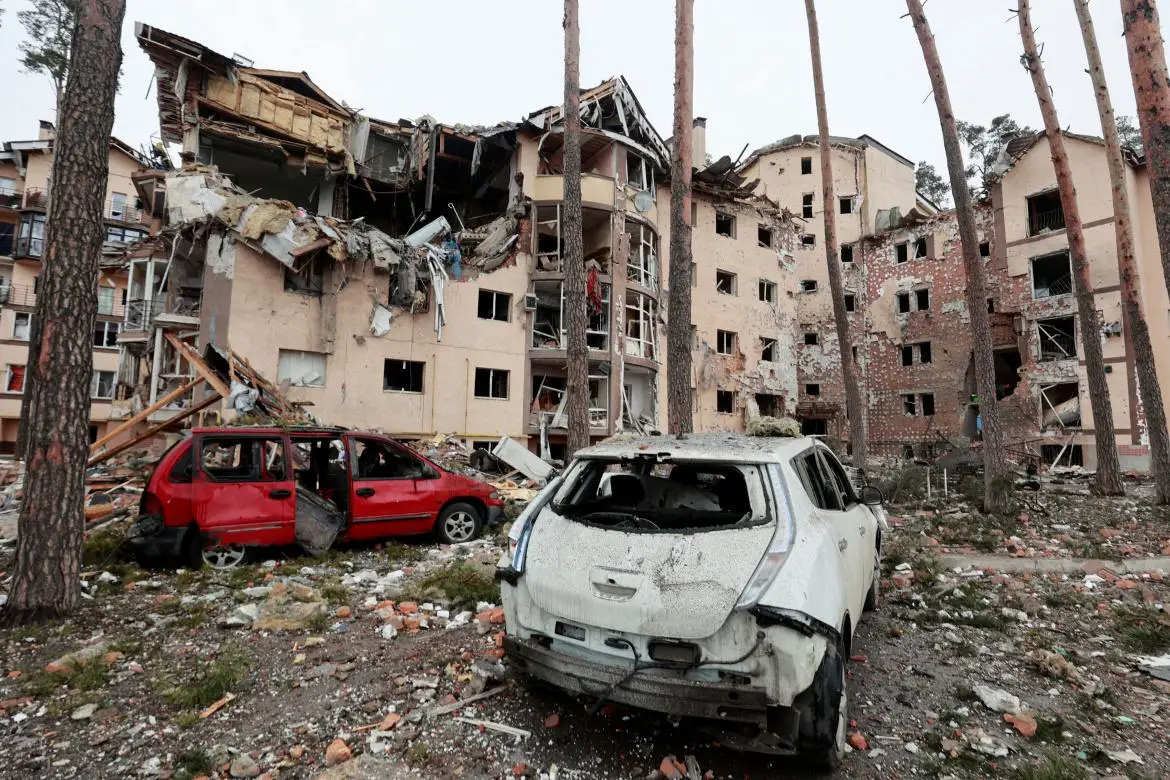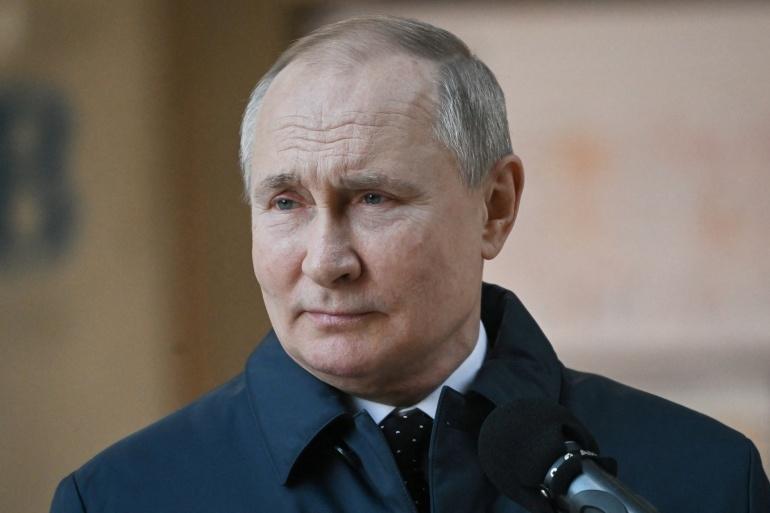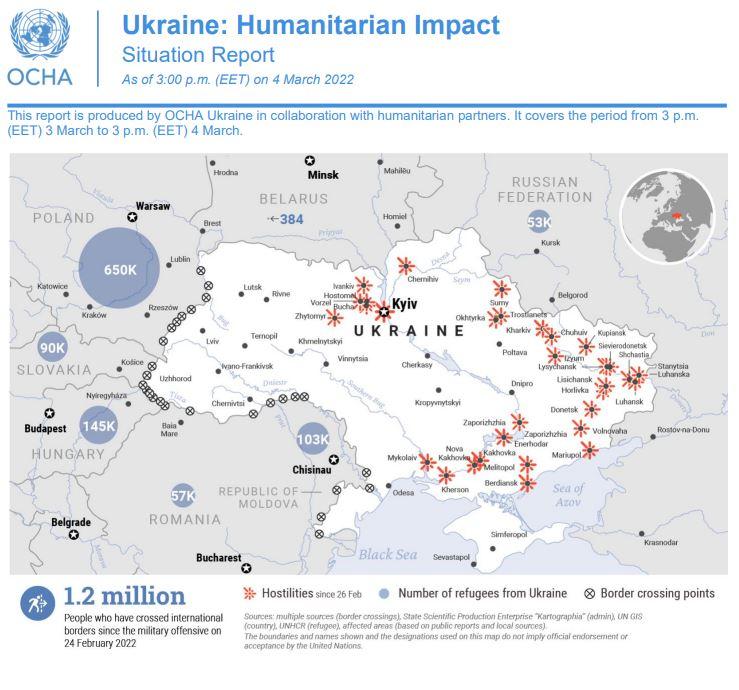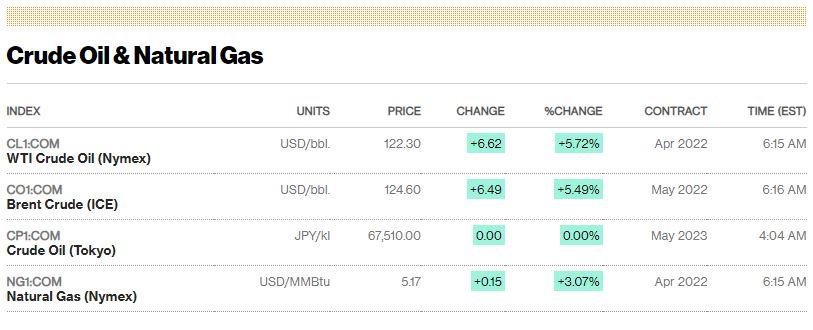
The war in Ukraine has had intended and unintended casualties in and around Ukraine and world over.
The Russo-Ukrainian has the potential to roll back the gains the world had started to make post COVID through the volatility it has caused in the financial markets. Much of the volatility caused by the war has been the spike in the price of crude oil which has seen non-oil producing countries many of which are not part of the conflict importing inflation into their economies. The Ukraine war will expose sensitive vulnerabilities in countries from the price shock in commodities in general. Vladimir Putin the architect of the war in Ukraine so far is unfazed by the impact of the economic sanctions imposed on him and doubled down on his aggression against the former soviet nation. The Ukraine war has introduced froth in world markets and other economies which have little to do with this conflict.
Vladimir Putin is not a likeable character.

He has been caricatured as a draconian villain in the most epic of proportions. This reputation is not underserved. On Thursday 24th February 2022 the Russian strongman invaded Ukraine and set in motion a sequence of events that have led to the most acrimonious of conflicts in recent times. Without the use of superlative language and without exaggeration the conflict in Ukraine is a war. It cannot be described any other way. Putin has dress rehearsed his military campaigns since 2008 when he invaded Georgia and again when he annexed Crimea which ironically belonged to Ukraine in 2014.
War and conflict feature highly on Mr. Putin’s favorite pass times. This most recent orgy of violence on civilians in a neighboring country was brought about by what the Russian leader described as the need to “de-Nazify” Ukraine and to rescue Russian speaking Ukrainians who he believes were suffering persecution. Both assertions have been debunked and shown to be false however they provided a convenient pretext for the strong man to flex his military muscle. He sounded a warning which made the rest of the world sit up and take notice. If any country does so much as even to imagine an intervention, he would put his nuclear arsenal on high alert. A threat he proceeded to make good on.
https://globalnews.ca/news/8720691/food-crisis-ukraine-russia-war/
In Russia according to state media and propaganda there is no war in Ukraine. What is going on is no more than a military operation whose mission are the reasons the president of the Russian Federation gave. There have been protests all over the world concerning the ongoing conflict including in Russia. Those who have protested in Russia have found themselves arrested and guests of honor at the many police stations across Russia. It has been reported that Putin’s onslaught of against has resulted in one of the greatest humanitarian crises of modern times. British newspaper, The Guardian estimates that at least 1.3 million refugees have fled the former Soviet country. Ukrainians leaving their country have headed west into Poland, Moldova, Slovakia, Romania, and Hungary.

The United Nations High Commissioner for Refugees estimates that at least 4 million people will become refugees from this conflict while in Ukraine millions more will be displaced by the falling bombs and shelling. It is not a pleasant affair. The war has engendered feelings of resentment, bitterness, and just plain naked hatred towards Putin. As it is 756,000 people have crossed the border into Poland with between 50,000 and 80,000 crossing daily. As can be expected from such an influx of people leaving an area to settle in another the Polish resources have now become strained. Hungary has seen the second highest number of refugees at 157,000 since the invasion began.
The United Nations Office for the Coordination of Humanitarian Affairs (OCHA) reports that at least 12 million people have been left in need because of the conflict. This number is substantial given that it is approximately the same as the population of Zimbabwe. The funding required to successfully deal with this humanitarian crisis has also been estimated by OCHA to be in the region of at least US$ 1.1 billion.
The geographic reach of the conflict continues to increase everyday with new areas situated away from the common hotbeds in eastern Ukraine and in urban areas are increasingly being affected. Many cities across certain parts of Ukraine have been facing a week of persistent shelling that continues to damage or disrupt functioning of civilian infrastructure, leaving thousands without water, heating, or electricity, creating critical shortages of food and medicine. This is also preventing the delivery of life-saving supplies and the evacuation of the most vulnerable, including children, women, the elderly, and people living with disabilities, as roads and bridges as well as trains and railway stations have been significantly damaged or destroyed.
The United Nations reports that civilian casualties are mounting literally by the hour. Between 4 a.m. on 24 February and midnight on 3 March, the Office of the UN High Commissioner for Human Rights (OHCHR) reports at least 1,006 civilian casualties, including 331 killed, a figure that is likely much higher as civilian deaths and injuries continue to be verified. OHCHR reports 440 casualties in Donetska and Luhanska (54 killed and 277 injured in Government-controlled areas and 23 killed and 86 injured in non-Government-controlled areas) and 566 civilian casualties in other regions of Ukraine.
The scale and the scope are not yet clear as the conflict is still on going and it is in its early days in comparison to the conflict in Mozambique for example which has been on going for the last 5 years. It is estimated that at least 10 million people will leave their homes from this conflict. As the scale of displacement increases, the most vulnerable groups, including women and children, people living with disabilities, third-country migrants, and older persons, among others, will face heightened protection risks, such as abuse and neglect as well as sexual and gender-based violence.
The most urgent need going forward will be to facilitate the evacuation of refugees from Ukraine to safe countries with priorities being given to the vulnerable and those living with disabilities. Food, shelter, and basic household items should also be priority for those trapped in the war-torn areas. Medical supplies are also critical for those in hospitals. Trauma and surgical supplies, essential medicines as well as backup generators and fuel for health-care facilities are urgently needed. Repair works to restore access to water supply, electricity, telecommunications, and other critical services in the hardest hit areas are urgently needed. Scaled-up psychosocial and mental health support to crisis-affected people whose pre-existing needs have been greatly exacerbated amid the current escalation in conflict.
Ukraine just like any another metropolitan state is a melting pot of people with diverse backgrounds from all walks of life. As such there among the refugees are people from various nationalities. This has given rise to the need for protection of third-party nationals from countries like Bangladesh, Democratic Republic of Congo, Zimbabwe, India, and Nigeria who are fleeing the conflict. There has been a strong humanitarian response from the Ukrainian government and from surrounding countries however, there are challenges that remain. Access to conflicted areas remains restricted and that makes it difficult to evacuate refugees amid a deteriorating security environment. This has led to an accumulation and exacerbation of unmet needs.
Consequences
This conflict and all the carnage it has caused is not necessary. It was unprovoked. It all goes back to the state of mind of the central character in the plot, Vladimir Putin. He is a man who has romantic nostalgia about the Soviet era and has longed to restore Russia to its former glory. To realize this dream the Russian leader has used military force to cower and annex former Soviet territories targeting those not protected by NATO. This latest move has not been without consequence. Russia has been placed under the most unprecedented of sanctions. The Russian central bank has itself been placed under sanctions and western countries are mulling a decision to place an embargo on critical Russian exports.
Their goal is to cripple the country economically so that carrying on an armed conflicted is no longer feasible. The problem with sanctions is that they are like a slow acting poison. Their effect is not immediately apparent. Putin feels especially brazen and more emboldened since there has not been any other country joining the conflict beyond the imposition of sanctions. Sanctions will hardly deter a man who has ruled his country in such a way that the only way for him to leave office will be feet first in a casket because of the many personal enemies he has created. Sanctions will not deter a man who uses nerve agent poison (Novichok and Dioxin) on political opponents even administering it himself should the occasion call for it in the specific case of Viktor Yushchenko who ironically is the former president of Ukraine and in the case of imprisoned opposition leader Alexey Navalny.
Sanctions will not deter a dictator who had a businessman thrown in jail for ten years on flimsy charges for sponsoring opposition parties in the case of Mikhail Khodorkovsky. Concomitant military force is what the Russian strongman respects. Sanctions can be rendered relatively ineffectual where the target country is not totally isolated. Russia is banking on economic support from China which will be a much bigger market than Europe for its exports of coal and gas which the European Union is threatening to embargo. Reliance on China economically could backfire. This is something Putin is determined to wager. Russia is the 3rd largest producer of crude oil; it supplies gas to all of Europe and coal to 60% of the continent. The EU is now seeking to have Russia removed from the World Trade Organization in a move that could see tariffs imposed on at least US$ 105 billion of its exports.
The EU is Russia’s biggest trade partner, accounting for 37% of the country’s total trade in goods with the world in 2020. Total trade between the two regions that year amounted to 174.3 billion euros, and the EU’s top import from Russia is petroleum — worth about 67 billion euros a year. The chaos in Ukraine has had a strong bearing on the financial markets. The most visible indicator of the intensity and adversity of the conflict has the been the price of crude oil.

The spot price for crude oil according to Bloomberg on 7th March 2022 was US$ 124.60 which analysts has been the highest price the commodity reached since 2008. CNBC reported the previous day that the price of oil had gone above US$ 130 per barrel for the first time in 13 years. This is very significant. During the days that the price of oil was rallying stocks reportedly tumbled. The price of oil has a huge bearing on most if not all business activities. This is because oil and its derivatives are direct inputs for most if not all businesses. Therefore, a dramatic increase in the price of oil has the potential to become inflationary. A global inflationary environment will reverse all the economic gains that most of the countries of the world have made since recovering from the effects of the pandemic.
Of course, a rising oil price does not spell doom gloom for all countries and companies. Countries that produce the black gold will see an increase in the value of their exports and should enjoy a stronger balance of payments and reserves position. This should leave their currencies in a stronger position relative to their trading partners. The problem is that those countries that do not produce or export oil will import inflation into their local economies from the rising oil prices.
Foreign investment is fleeing Russia at the same pace as the refugees in Ukraine ever since the country was slapped with sanctions. Now with a looming embargo on the critical exports Europe will have to find alternative suppliers of the goods it would otherwise buy from Russia. This is can be viewed in one of two ways, as an opportunity for other countries to come to fill the gap left by the Russian embargo or a catastrophe. Sentiment world over would generally agree with the latter. This war and the resulting geopolitical tensions will greatly enhance volatility in the world economy which is already grappling with inflation and the aftermath of the pandemic. It is going to be a lasting pain point for a number of countries going forward most tragically of all those countries that have nothing to do with this war!
https://theexchange.africa/countries/ukraine-affects-food-security-sudan/










